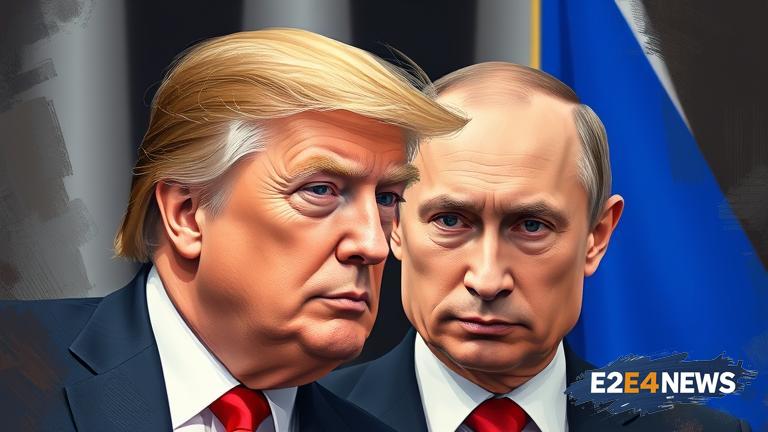The United States and Russia are on the brink of a diplomatic standoff as the deadline set by President Trump for the Kremlin to respond to US demands is fast approaching. Despite the looming deadline, Russian President Vladimir Putin has shown no indication of making concessions, leaving the international community on edge. The US has been pushing for Russia to take action on several key issues, including the removal of Russian troops from Ukraine and the cessation of cyberattacks on US targets. However, Putin has remained steadfast in his refusal to comply, citing Russia’s sovereignty and national interests. The tensions between the two nations have been escalating for months, with both sides engaging in a war of words and diplomatic posturing. The US has imposed several rounds of sanctions on Russia, targeting key sectors of the Russian economy, including energy and finance. Russia has responded in kind, expelling US diplomats and imposing its own sanctions on US goods. The situation has sparked concerns of a new Cold War, with many experts warning of the dangers of unchecked tensions between the two nuclear-armed nations. The US has also been critical of Russia’s actions in Syria, where Russian forces have been backing the Assad regime in its fight against rebel groups. The US has accused Russia of war crimes and human rights abuses in Syria, which Russia has denied. Despite the tensions, there are still hopes for a diplomatic breakthrough, with some officials suggesting that a meeting between Trump and Putin could help to ease tensions. However, others have warned that such a meeting could be seen as a victory for Putin, who has been seeking to boost his international stature. The US has also been working to build a coalition of allies to counter Russian aggression, including NATO partners and other European nations. The EU has imposed its own sanctions on Russia, targeting key sectors of the Russian economy. The situation has also sparked concerns about the impact on global trade and commerce, with many businesses and investors wary of the potential consequences of escalating tensions. The US has also been critical of Russia’s actions in the energy sector, where Russia has been seeking to expand its influence through the construction of new pipelines. The US has accused Russia of using energy as a tool of coercion, which Russia has denied. The situation has sparked a heated debate about the role of energy in international relations, with some experts arguing that the US should take a more aggressive approach to countering Russian influence. Others have warned that such an approach could lead to unintended consequences, including higher energy prices and reduced global energy security. The US has also been working to build its own energy sector, including the development of new oil and gas fields. The situation has sparked concerns about the potential consequences of a diplomatic breakdown, including the potential for military conflict. The US and Russia have a long history of tensions, dating back to the Cold War era. The two nations have been engaged in a series of proxy wars and diplomatic standoffs, including the Cuban Missile Crisis. The situation has sparked concerns about the potential for a new era of tensions, with many experts warning of the dangers of unchecked aggression. The US has also been critical of Russia’s actions in the area of human rights, where Russia has been accused of suppressing dissent and opposition. The US has imposed sanctions on Russian officials accused of human rights abuses, which Russia has denied. The situation has sparked a heated debate about the role of human rights in international relations, with some experts arguing that the US should take a more aggressive approach to promoting human rights. Others have warned that such an approach could lead to unintended consequences, including reduced cooperation on key issues such as counter-terrorism.





